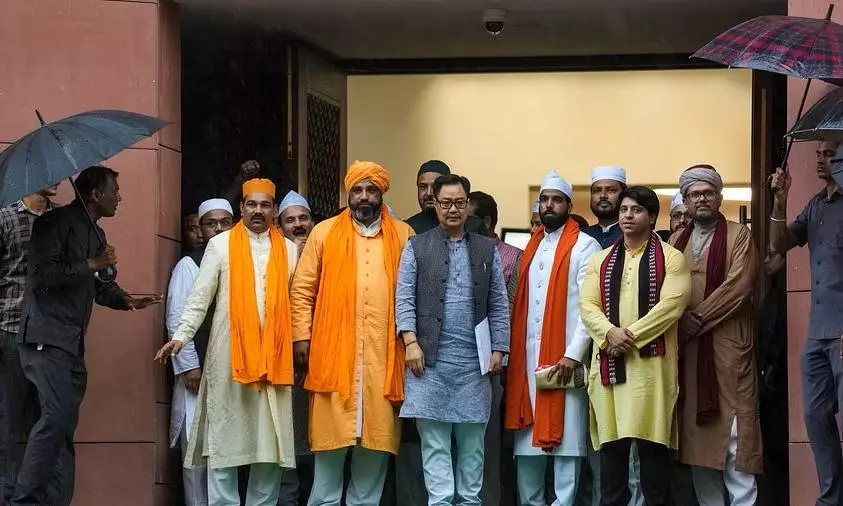
Pasmanda Muslims seek probe into BJP MP’s controversial remark on Waqf Bill feedback
text_fieldsThe All India Pasmanda Muslim Mahaz (AIPMM), representing various backward sections of the Muslim community, including Dalits, particularly in North India, questioned BJP MP Nishikant Dubey over his remark that external players could have contributed to the massive feedback against the Waqf Amendment Bill, and demanded a probe into his remarks.
The AIPMM has claimed that Dubey is attempting to malign the Muslim community during discussions related to the bill in the Joint Parliamentary Committee (JPC).
Dubey had recently questioned the authenticity of over 1.2 crore submissions made to the JPC regarding the bill. He suggested that an inquiry should be conducted into the origins of these suggestions, hinting at the potential involvement of individuals such as preacher and televangelist Zakir Naik and foreign entities such as Pakistan’s intelligence agency Inter-Services Intelligence and China.
The AIPMM, however, has pushed back against this claim, asking on what basis such allegations were made and urging that the integrity of the parliamentary process not be undermined.
The Waqf Amendment Bill, which was introduced in the Lok Sabha on August 8, 2024, was sent to the JPC following opposition from various political parties. It proposes amendments to 44 sections of the 1995 Waqf Act, with a focus on enhancing transparency and ensuring that funds generated by waqf properties are used for the welfare of specific groups, including widows, divorcees, and orphans.
One of the bill’s key features is the verification of land before it is declared a waqf property, a measure intended to prevent fraudulent claims.
Waqf properties, which Muslims donate for religious, educational, or charitable purposes, have long been governed under the Waqf Act. State-level Waqf Boards are tasked with managing these properties, with legal entities vested with the authority to acquire, hold, and transfer property on behalf of the waqf.
The most recent amendment to the Act was in 2013, and the current bill represents a significant overhaul of the system, addressing some of the loopholes and inefficiencies in the existing framework.
However, critics of the proposed bill, including the AIPMM, argue that the changes go beyond reform and threaten the structure of the institution itself. There is concern that the bill’s provisions, especially those related to the nomination of Waqf Board members by state governments, could lead to increased government interference in the management of waqf properties, reducing Muslim representation in the process. T
he AIPMM believes that such measures could dilute the autonomy of Waqf Boards and centralise control in ways that benefit political and economic interests rather than the community.
The AIPMM has urged that no efforts be made to create mistrust or cast doubt on the confidentiality of the JPC’s proceedings. It has also requested that the committee allow the organisation to submit its own suggestions and objections to the bill. The group's concerns reflect broader apprehensions within sections of the Muslim community about the potential implications of the bill, particularly regarding the management and oversight of waqf properties.






















